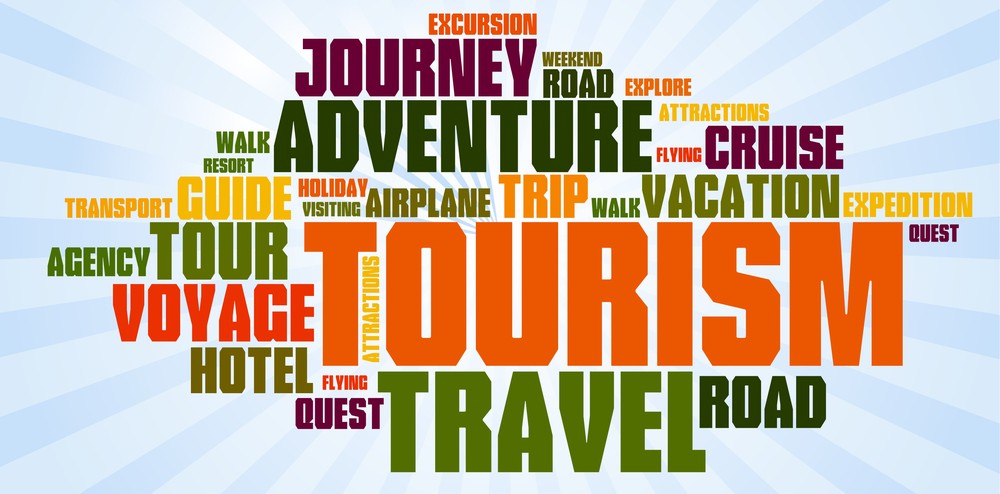Recognition of Gender Issues in the Tourism Industry

Shilpa Rani is a third year undergraduate pursuing law from NUSRL, Ranchi. She believes that having an idea is futile if it is not expressed to world. She wants to give a try to all her dreams.
Recognition of Gender Issues in the Tourism Industry
Issues most omnipresent in the development and other discourses in contemporary world are related to gendered deprivation and discrimination. This concept of discrimination and its effects have been recognized and are then incorporated in many development works but it is largely neglected in the theory and practice of tourism. Development in the area of tourism exhibits the environmental, social, cultural and economic aspect of a country. It is an important aspect of the concept of sustainable development. Impacts of this tourism industry have been well documented. But in the arena of 21st century, there is a need to integrate gender perspective into the tourism industry discussions as many women are being employed in this industry. Tourism offers many opportunities to women and helps them in generating income by engaging in tourism activities and thus affects their position in communities.
But the problem lies there too, women are mostly employed in low paid, unskilled jobs. Tourism seeks to address this issue of ‘Equality’ no matter whether it is rural or urban. Women are denied a fair and equal chance because most of the resources and decision-making processes are controlled by men. This gender perspective plays an important role in tourism industry where women make up half of labour force but are paid lower and are assigned mostly unskilled jobs. Adding to this, gender segregation affects the pay and training and women remain unrepresented in management and leadership. Recognizing gender issues within the tourism industry and taking proper action in this course is very important to ensure development and growth of tourism industry. Due to women’s concentration in the lower status and lower paid jobs in tourism, their potential to contribute fully is currently untapped.
According to UNWTO Tourism Highlights of 2010, tourism’s contribution to employment is around six to seven per cent of the overall number of jobs worldwide. One out of 12 of the world’s working population is employed in the travel and tourism industry. In developing countries, women have less access to education and greater household responsibilities and there few features of tourism industries like the low barriers to entry, flexible working hours and part-time work provide opportunities for employment. Development and progress in tourism can also help women break the poverty cycle through formal and informal employment, entrepreneurship, training and community betterment. However, all women cannot be equally benefited from tourism development. In 2007, the UNWTO’s theme for the World Tourism Day was “Tourism Opens Doors for Women.” Participation of women in the labour market of a country is an indicator of economic development. Participation of women is both a challenge and an opportunity. For industries competing to attract valuable human resources, retaining women in the labour market provides a valuable chance.
There are many problems with women participation. In the tourism industry, women are employed in lower-paid jobs and are with fewer opportunities for career progression. There is a need to identify the issues affecting the employability of workers within the tourism industry by addressing retention and recruitment challenges. This needs to be supported by a set of research studies, a training program focusing on the concept of diversity management and aimed at helping practitioners in tourism management fields.
Many inactive women can enter into tourism. The tourism industry has a potential to create many employment as well as self-employment opportunities but in order to make it practically possible, the above mentioned problems need to be addressed properly. One can list the need to empower women, particularly those who have been inactive for a substantial period of time and would have lost the skills that make them employable, the need to provide working environments which foster work-life balance, addressing the issue of precarious work and making work pay. Gender mainstreaming can be used as a strategy through which these issues can be addressed – acknowledging the needs and aspirations of men and women and transforming organizations into gender-inclusive workplaces. Empowerment of members of the under-represented gender can happen through positive action initiatives, such as specific training and recruitment that consciously reach out to excluded or disadvantaged groups.
In terms of work-life balance, it can be stated that in the 21st century women constitute the majority of careers in our society. Therefore while creating employment opportunity workers should be given enough scope to combine their working and caring responsibilities. The provision of childcare centers or day centers for the elderly will also help in enabling such individuals to participate in the labour market. As already mentioned, women employed in the tourism industry are concentrated in lower-paid jobs with fewer opportunities for career progression. This inequality can be overcome through pro-active gender-equality policies and training aimed at combating and overcoming gender stereotypes. Making work pay is a concept that entails the creation of attractive jobs to encourage potential workers to tap into new opportunities rather than remain inactive. When it comes to part-time work, lower hourly pay rates and fewer opportunities for progression often constitute a disincentive. Once again, it is women who constitute the majority of part-time workers.
One phase of UNWTO’s work on gender and tourism is the Women in Tourism Empowerment Programme (WITEP). WITEP will set a precedent for establishing tourism as a tool for the promotion of gender equality and women’s empowerment, using gender analysis and gender training to tackle inequality and gender-based discrimination in the tourism industry.
To promote women’s economic empowerment in tourism through partnerships with hotel chains and other stakeholders, the process will involve improving employment/entrepreneurship opportunities for women by facilitating their access to jobs and/or participation in supply-chains, and by creating possibilities for career advancement. Four main components of WITEP are employment skills, supply chain, career advancement and gender awareness. The pilot implementation phase of WITEP is currently being designed and UNWTO’s Ethics and Social Responsibility Programme is in negotiation with a series of potential partners from the public and private sector.
The lack of equal opportunities for women, particularly in decision-making processes have negatively affected the progress in tourism while it also continues to stall the advancement of women no matter where they are from, be it rural Africa or urban Europe. Equality within tourism industry cannot be achieved without a rigorous gender analysis in the thinking, development, practice and evaluation of tourism. If these are not done, exploitation of women will continue. In the same way as a human rights approach to business is now recognized as integral to sustainability, so must a gender approach become part of that same agenda. Without having a gender perspective and reframing of policies, any attempts to build sustainable tourism policies and business will be negated. Equality within tourism industry is the need of the hour for development and progress in tourism and then its contribution will also increase to a remarkable level.


